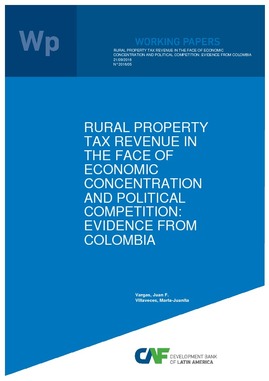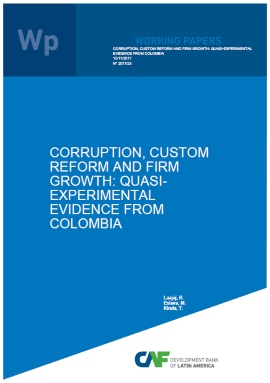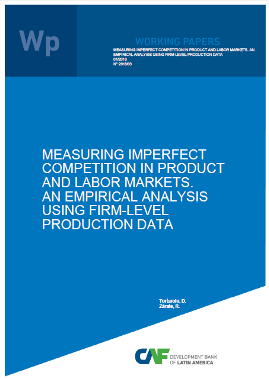Rural Property Tax Revenue in the Face of Economic Concentration and Political Competition: Evidence from Colombia
Abstract
We study the relationship between two sources of political power and property tax revenues in contemporary rural Colombia. First, de jure political power is the extent to which local political elites can capture the public administration for their own benefit. Second, de facto political power is the extent to which economically powerful landowners can influence policy. Using a panel of municipalities, we show that places with either high economic or high political concentration raise more taxes, but places with both high political and economic concentration perform worse.
Subject
Country / Region
Date
2016-09-21Cite this publication
Belongs to collection
Author
Vargas, JuanVillaveces, Marta-Juanita
Items Relacionados
Decentralizing Development: Evidence from Government Splits
Changes in political boundaries aimed at devolving power to local governments are common in many countries. We examine the economic consequences of ...
Corruption, Custom Reform and Firm Growth: Quasi-Experimental Evidence from Colombia
Customs are often prone to corruption because it concentrates a lot of discretionary power in the hand of custom agents who take decisions with high ...
Measuring Imperfect Competition in Product and Labor Markets. An Empirical Analysis using Firm-level Production Data
In this paper, we develop a simple theoretical model that allows us to disentangle empirically the extent of imperfect competition in product and labor ...






